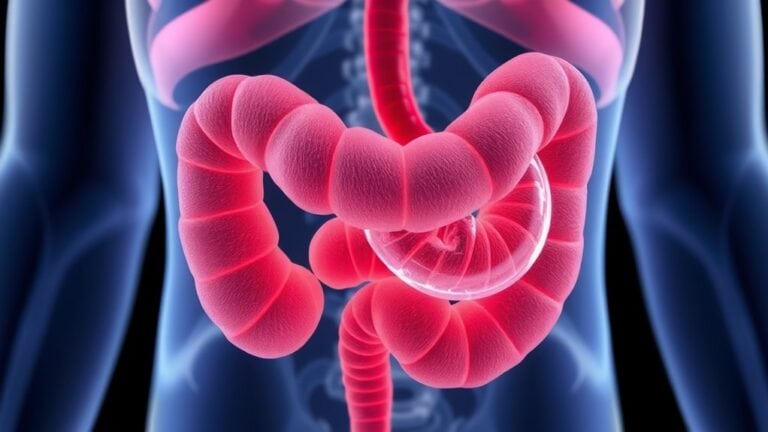Cutting processed foods from your diet is like hitting the reset button on your health—your body finally gets the chance to function without the constant flood of additives, sugar, and empty calories.
You may notice your energy levels stabilizing, cravings fading, and even your skin clearing up as your system detoxes from artificial ingredients. But the real surprise? The way your taste buds wake up to the vibrant flavors of whole, unprocessed foods. The expedition isn’t always smooth, though—those initial few days can feel rough as your body adjusts. Yet, the changes you’ll experience go far beyond just weight loss.
Understanding the Impact of Processed Foods on Health
Processed foods can seem convenient, but they pack a concealed punch to your health.
Ultra-processed items, loaded with added sugars and lacking nutritional value, disrupt your body in ways you couldn’t notice at the outset. They spike blood sugar, increasing your risk of type 2 diabetes, and strain your heart, raising chances of heart disease.
Even your mental health takes a hit, with links to depression and cognitive decline.
Swapping them for whole foods helps with weight loss and improves overall well-being.
Every bite counts—choosing real food over packaged shortcuts keeps your body running smoothly, inside and out.
Benefits of Cutting Out Processed Foods
While it could feel tough initially to ditch those convenient snacks and pre-packaged meals, cutting out processed foods pays off in ways you’ll notice fast.
You’ll likely see weight loss as you swap refined carbs for whole foods packed with nutrients. Your energy levels stabilize without the crashes from added sugar.
Over time, digestive health improves thanks to fiber-rich choices. You might even notice an improved mood as your body gets the vitamins it craves.
Common Withdrawal Symptoms and How to Manage Them
Ever feel like your body’s throwing a tantrum as soon as you ditch processed foods? You’re not alone. Withdrawal symptoms like headaches, fatigue, and irritability are common as your body adjusts to less added sugars and refined carbs.
Cravings might spike, and digestive changes like bloating can happen at the time of switching to whole foods. But these are temporary symptoms—your energy levels and mood will stabilize as your blood sugar evens out.
Stay hydrated, snack on nuts or fruit to curb cravings, and give yourself grace. A nutrient-rich intake helps your body adapt faster, so focus on patience and progress.
How Your Body Transforms Without Processed Foods
Ditching processed foods does more than just ease those initial withdrawal pangs—it kickstarts real, lasting changes in your body.
Without refined carbs and added sugars, your blood sugar stabilizes, boosting energy levels and sharpening focus. You’ll likely notice weight loss as whole foods, like fresh fruits and veggies, replace calorie-dense snacks.
Your digestion improves thanks to fiber-rich choices, reducing bloating and discomfort.
Over time, cutting processed foods lowers your risk of chronic diseases by flooding your system with nutritional nutrients instead of empty calories.
It’s not just a diet shift—it’s a full-body upgrade that feels as good as it looks.
Simple Strategies to Transition to Whole Foods
Shifting to whole foods doesn’t have to feel overwhelming—small, smart swaps make it easier. Start by replacing processed foods with whole grains, like brown rice instead of white, for more fiber.
Plan meals ahead so you’re less tempted by quick, unhealthy choices. Focus on fruits and vegetables by shopping the store’s perimeter, where fresh options live.
Prep snacks like cut veggies or nuts to avoid grabbing processed bites. Read food labels; skip long ingredient lists full of additives.
These steps help you make healthy choices without stress, building habits that support your well-being and public health goals.
Long-Term Health Improvements From Eliminating Processed Foods
Whenever you replace processed foods with whole, nutrient-packed options, your body starts rewarding you in ways that go beyond just feeling better today.
Long-term adherence to an unprocessed diet slashes your risk of type 2 diabetes and heart issues by cutting added sugars and unhealthy fats. You’ll likely see steady weight loss without starving yourself, plus better digestion thanks to fiber-rich foods.
High consumption of processed stuff? Linked to shorter lifespans—ditching it boosts longevity.
And don’t overlook improved mood; real food fuels your brain right. Stick with it, and these health results compound, making every bite count.
Conclusion
Cutting out processed foods isn’t easy, but isn’t your health worth it? You’ll feel lighter, consider clearer, and have energy that lasts all day. Sure, the initial few days could be tough, but soon your body will thank you. Envision waking up refreshed and craving real food—how good would that feel? Stick with it. Your future self will love you for this simple, powerful change. Ready to start feeling better?





